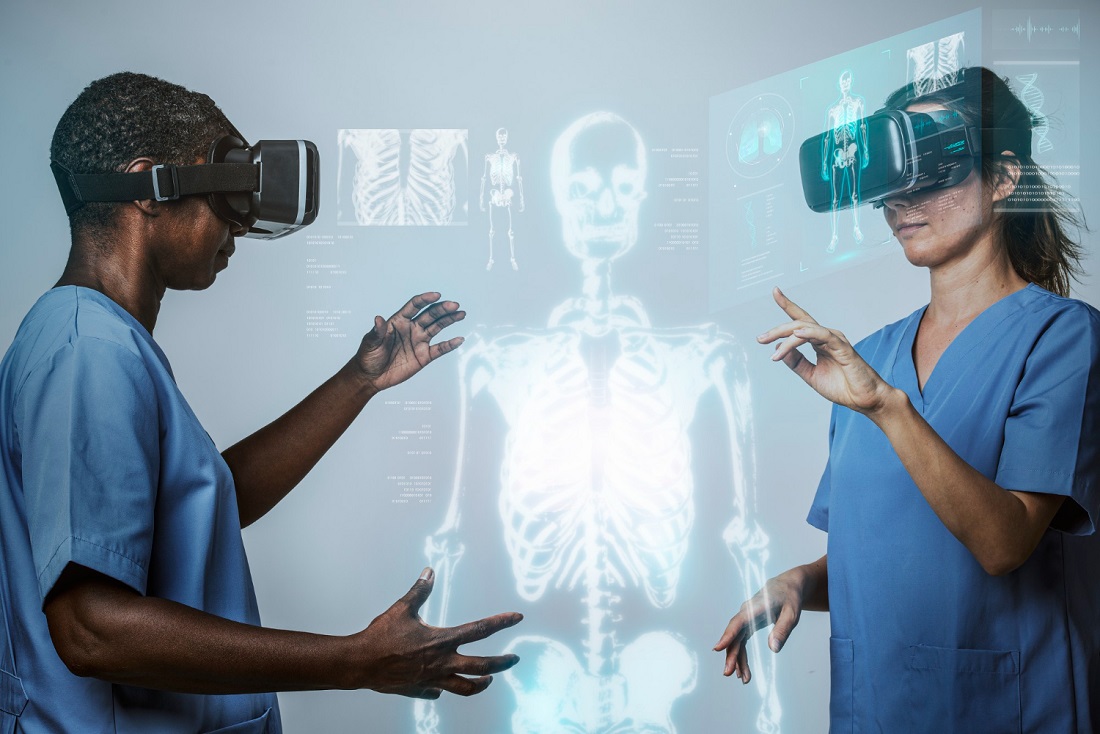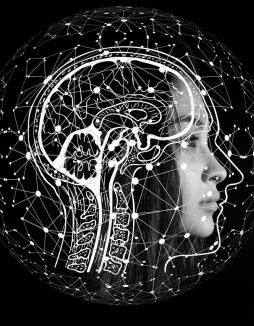The Role of AI in Healthcare: Improving Patient Care
The potential of artificial intelligence (AI) to revolutionize the healthcare industry is boundless. AI-driven solutions have already been used to create more efficient healthcare systems, reduce costs, and improve patient care. In this blog post, we will explore the role of AI in healthcare and how it can be used to create a more efficient healthcare system and improve patient care. We will also explore how healthcare providers can use AI to engage with their patients, increase patient satisfaction, and build a strong healthcare email list.
What is AI in Healthcare?
Artificial Intelligence (AI) in healthcare refers to the use of advanced technologies, such as machine learning and natural language processing, to analyze and interpret large amounts of healthcare data. AI systems can learn from this data to make informed predictions, identify patterns, and assist in decision-making processes. In the context of healthcare, AI can be used to streamline administrative tasks, improve diagnostic accuracy, enable personalized treatment plans, and enhance patient engagement.
AI technologies can process and analyze vast amounts of medical information, including patient records, research data, and medical literature, much faster and more accurately than humans. This can lead to more accurate diagnoses, early detection of diseases, and improved treatment outcomes. Additionally, AI-powered chatbots and virtual assistants can provide patients with real-time support, answer their queries, and help them manage their health conditions more effectively.
Overall, AI has the potential to transform the healthcare industry by improving patient care, reducing medical errors, and optimizing healthcare delivery. It is an exciting field with numerous possibilities and is set to revolutionize healthcare as we know it.
How Can AI Improve Patient Care?
AI has the potential to greatly improve patient care in several ways. One key area is early diagnosis and personalized treatment. AI systems can analyze vast amounts of medical data, including patient records and research data, to identify patterns and make accurate predictions. This can lead to the early detection of diseases, allowing for prompt treatment and improved outcomes. AI can also assist in developing personalized treatment plans based on individual patient data, taking into account factors such as genetics, lifestyle, and medical history.
Additionally, AI can enhance patient monitoring and management. Remote patient monitoring systems equipped with AI algorithms can track vital signs and alert healthcare providers of any abnormalities or changes in a patient's condition. This allows for proactive interventions and reduces the risk of complications. AI-powered chatbots and virtual assistants can also provide real-time support to patients, answer their questions, and help them manage their health conditions more effectively.
Overall, AI has the potential to revolutionize patient care by enabling early diagnosis, personalized treatment, and improved patient monitoring and management.
Early Diagnosis and Personalized Treatment
Early diagnosis and personalized treatment are two areas where AI has shown significant potential in improving patient care. AI systems can analyze large amounts of medical data, including patient records and research data, to identify patterns and make accurate predictions. This can lead to the early detection of diseases, allowing for prompt treatment and improved outcomes. Additionally, AI can assist in developing personalized treatment plans based on individual patient data, taking into account factors such as genetics, lifestyle, and medical history. This tailored approach can lead to more effective and targeted treatments, minimizing unnecessary procedures or medications. By harnessing the power of AI, healthcare providers can revolutionize patient care by offering early detection and personalized treatment plans, ultimately improving patient outcomes and enhancing the overall healthcare experience.
Enhanced Patient Monitoring and Management
With the help of AI, patient monitoring and management can be greatly enhanced. AI-powered remote patient monitoring systems can continuously track vital signs and collect data on a patient's condition. These systems can detect any abnormalities or changes in real-time and alert healthcare providers, allowing for immediate interventions and proactive care. This can help prevent complications and reduce hospital readmissions.
Additionally, AI can assist in the management of chronic conditions. By analyzing data collected from wearable devices and patient-reported information, AI algorithms can provide personalized recommendations for self-management, such as medication reminders, lifestyle modifications, and exercise routines. AI-powered chatbots and virtual assistants can also play a role in patient management by providing real-time support and answering common healthcare questions.
Overall, AI in patient monitoring and management has the potential to improve patient outcomes, increase patient engagement, and empower individuals to take control of their health. By leveraging AI technologies, healthcare providers can deliver more proactive and personalized care, ultimately leading to better patient experiences and outcomes.
AI in Medical Imaging
Medical imaging plays a crucial role in the diagnosis and treatment of various diseases. However, interpreting these images can be time-consuming and subjective, leading to potential errors and delays in patient care. This is where AI comes in. AI has the potential to revolutionize medical imaging by enhancing the accuracy and efficiency of image interpretation.
By utilizing advanced algorithms, AI systems can analyze medical images, such as X-rays, MRIs, and CT scans, to identify abnormalities and make precise diagnoses. AI can help radiologists by highlighting regions of interest, providing automated measurements, and even suggesting potential diagnoses based on patterns found in the data.
Furthermore, AI can assist in detecting subtle changes in images over time, which can be crucial in monitoring the progression of diseases like cancer or evaluating the effectiveness of treatment. This can lead to earlier detection of diseases and more targeted treatment plans, ultimately improving patient outcomes.
Overall, AI in medical imaging has the potential to enhance diagnostic accuracy, improve efficiency, and ultimately save lives. By working alongside healthcare professionals, AI can revolutionize the field of medical imaging, transforming the way diseases are detected and managed.
AI-powered Chatbots and Virtual Assistants
AI-powered chatbots and virtual assistants have emerged as valuable tools in healthcare, offering real-time support and personalized assistance to patients. These chatbots can interact with patients, answer their questions, and provide guidance on managing their health conditions. Virtual assistants can also help patients schedule appointments, refill prescriptions, and access relevant healthcare information.
The benefits of AI-powered chatbots and virtual assistants are numerous. They offer 24/7 availability, reducing the burden on healthcare providers and ensuring patients have access to support whenever they need it. Chatbots can triage patient inquiries, allowing healthcare professionals to focus on more complex cases. Moreover, chatbots can be programmed to offer empathetic and personalized responses, improving patient satisfaction and engagement.
As technology continues to advance, AI-powered chatbots and virtual assistants will play an increasingly crucial role in patient care. By harnessing the power of AI, healthcare providers can offer enhanced patient experiences, improve communication, and empower individuals to take control of their health.
AI and Drug Development
AI is also making significant strides in the field of drug development, offering new opportunities for more efficient and targeted therapies. Traditional drug development can be a lengthy and costly process, with a high rate of failure.
By analyzing vast amounts of biomedical data, AI algorithms can identify potential drug targets and predict the effectiveness of certain compounds. This can help researchers prioritize their efforts and focus on the most promising drug candidates, saving time and resources.
AI can also assist in the design of clinical trials, optimizing trial design and patient recruitment. By analyzing patient data and medical literature, AI can identify eligible patients, predict their likelihood of responding to treatment, and tailor the trial protocol accordingly.
Additionally, AI can aid in the discovery of new drug combinations. By analyzing drug interactions and molecular pathways, AI algorithms can identify potential synergies between drugs and improve treatment outcomes.
Overall, AI in drug development has the potential to revolutionize the pharmaceutical industry, leading to more efficient and effective therapies. By harnessing the power of AI, researchers can accelerate the discovery and development of new drugs, ultimately improving patient outcomes and transforming the landscape of healthcare.
Ethical Considerations and Concerns With AI in Healthcare
As we explore the incredible potential of AI in healthcare, it's crucial to address the ethical considerations and concerns that arise with this innovative technology. One major concern is patient privacy and data security. With the vast amount of sensitive information that AI systems analyze, there is a need for robust safeguards to protect patient confidentiality and ensure data is not misused.
Another concern is the potential for AI algorithms. If the data used to train AI systems is not diverse or representative, the algorithms may produce biased results that could perpetuate healthcare disparities. It is essential to prioritize diversity and inclusivity in data collection and algorithm development to avoid perpetuating inequalities in healthcare.
Lastly, there is the concern of AI replacing human healthcare professionals. While AI can augment healthcare delivery, it cannot replace the human touch and empathy that patients need. It's crucial to strike a balance between utilizing AI to enhance patient care and maintaining the crucial role of healthcare professionals.
Addressing these ethical considerations and concerns is vital to ensure the responsible and ethical integration of AI into healthcare, ultimately benefiting patients and improving the overall healthcare system.
Real-world Examples of AI Improving Patient Care
Real-world examples of AI improving patient care are already emerging, showcasing the immense potential of this innovative technology. One such example is the use of AI in diagnosing skin cancer. AI algorithms have been trained on thousands of images of skin lesions to accurately detect cancerous cells, potentially reducing the need for invasive biopsies. Another example is the application of AI in predicting patient deterioration. By analyzing real-time data from wearable devices, AI can identify patterns and alert healthcare providers of any impending health crises, allowing for timely interventions. AI is also being used to optimize medication management by analyzing patient data and identifying potential adverse drug interactions or non-compliance. These real-world examples demonstrate how AI is already revolutionizing patient care by improving diagnosis, enabling proactive interventions, and enhancing medication safety. With ongoing advancements, the potential for AI to transform healthcare and improve patient outcomes is truly remarkable.
Conclusion
In conclusion, the potential of AI to revolutionize healthcare and improve patient care is truly remarkable. AI-driven solutions have already shown immense promise in streamlining administrative tasks, improving diagnostic accuracy, enabling personalized treatment plans, and enhancing patient engagement. The ability of AI systems to process and analyze vast amounts of medical data faster and more accurately than humans has the potential to lead to more accurate diagnoses, early detection of diseases, and improved treatment outcomes. Additionally, AI-powered chatbots and virtual assistants can provide patients with real-time support, answer their queries, and help them manage their health conditions more effectively. While there are ethical considerations and concerns surrounding AI in healthcare, it is crucial to address them to ensure responsible and ethical integration. With ongoing advancements, AI has the potential to transform the healthcare industry, benefiting patients and improving the overall healthcare system.













